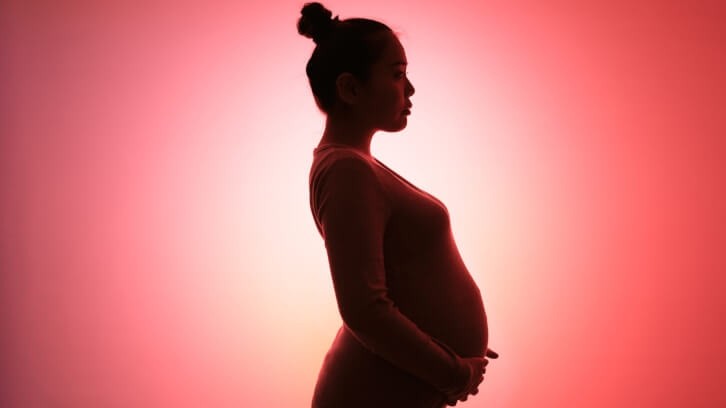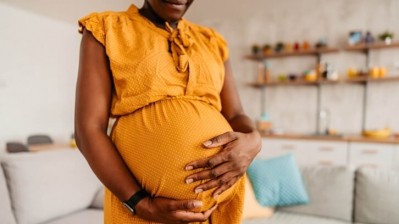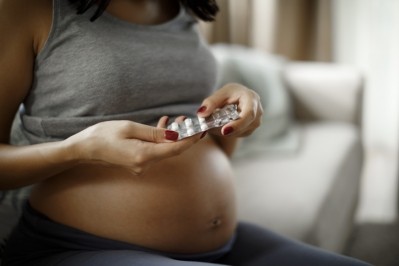Higher second trimester iron and vitamin D levels minimize depression symptoms later in pregnancy

Canadian researchers studied the effects of the vitamins on pregnant women as part of the Alberta Pregnancy Outcomes and Nutrition (APrON) cohort study. The goal was to examine if nutrient status in pregnancy and postpartum is related to maternal mental health. The aim of the sub-study was to explore the individual and combined associations of maternal iron and vitamin D status during and after pregnancy on depression symptoms among participants.
“Neurobiological evidence links iron status to energy and neurotransmitter balance in the brain and vitamin D to neuronal messaging and immunomodulation, suggesting their importance for mental health,” the researchers wrote. “Previous observational studies have reported associations between higher iron and vitamin D status, independently, with a reduced risk of maternal depression, but others did not. Nonetheless, most of the available evidence suggests that a higher maternal iron or vitamin D status predicts less prenatal or postpartum depression symptoms.”
Iron and vitamin D deficiencies
The APrON study recruited 2189 pregnant people from Calgary and Edmonton, Alberta, Canada between 2009 and 2012. These participants visited the study clinic up to three times during pregnancy and multiple times during the postpartum period.
The researchers assessed maternal intakes of iron and vitamin D from supplements via Supplemental Intake Questionnaires (SIQs) by self-report and participants confirmed the brand and dose of individual nutrients or multivitamins. This data was then converted into an estimated daily supplement intake for different micronutrients including iron and vitamin D.
Blood samples were taken during each study visit to determine concentrations of vitamin D and vitamin D deficiency and insufficiency.
To examine relationships between different levels of maternal iron and vitamin D status, the researchers developed four categories: replete iron and replete vitamin D; replete iron and low vitamin D; low iron and replete vitamin D; and low iron and low vitamin D.
Additionally, the scientists used the 10-item Edinburgh Postnatal Depression Scale (EPDS) to assess maternal depression symptoms at the third trimester and three months postpartum. This questionnaire is a widely researched tool to measure depressive symptoms in pregnant individuals, and it asks participants about varied aspects of their feelings in the past week. Scores could range from zero, indicating the absence of depressive symptoms, to 30, suggesting a high frequency or severity of depressive symptoms.
“When participants were categorized based on their iron and vitamin D status during the second trimester, about 65% were replete for both micronutrients; however, one-third had a low status in either iron or vitamin D, and less than 5% had a low status for both,” the researchers wrote. “Associations between maternal iron and vitamin D biomarker concentrations and third trimester maternal EPDS scores were observed.”
They added: “There were differences in EPDS scores during the third trimester depending on the combined status of maternal iron and vitamin D during mid-pregnancy. Compared with pregnant participants who were iron replete and vitamin D replete, EPDS scores were significantly higher when iron status was low and vitamin D was replete or when iron and vitamin D were both low.”
Socioeconomic status
The researchers acknowledged some limitations of the study.
Pregnant participants in the APrON cohort were generally well-nourished, which likely limited the group of individuals that had a low status of both iron and vitamin D in the investigation.
“In line with this, we also recognize that the pregnant participants in our study are of a generally high socioeconomic status and would caution generalizing to populations at a higher risk of poor mental health, obstetric complications or malnutrition,” the researchers wrote.
That said, an adequate status of iron and vitamin D during pregnancy can be difficult to achieve for many reasons, including limited access to food sources, low bioavailability of nutrient forms in consumed foods, the observance of specific dietary patterns, location or seasonality of residence, certain medical conditions and demographic factors such as ethnicity and age, the researchers noted. Pregnant people have a higher risk of low status or deficiency in one or both micronutrients due to the increased requirements for optimal fetal neurodevelopment and maternal health.
Source: Journal of Nutrition
“Maternal Iron and Vitamin D Status during the Second Trimester Is Associated with Third Trimester Depression Symptoms among Pregnant Participants in the APrON Cohort”
doi: doi.org/10.1016/j.ajcnut.2023.11.001
Authors: Amy Jennings et al.















